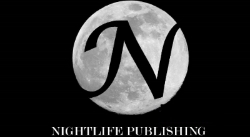Absorb what is useful, discard what is not, add what is uniquely your own.” Bruce Lee
One of the milestones in your artistic journey is rejection. You spend months or years focusing your energy and imagination to create something and express an aspect of yourself. Then a critic comes along and tells you it sucks. This is not a small thing to most artists. It is a blow to even the strongest of egos. It is also inevitable. So how do you deal with a scathing review that rejects every aspect of your art? The tactic I have developed is an attempt to answer this question.
What a bad review does for you:
First, let’s accept that no matter how a bad review makes you feel, it does serve useful purposes. Critical analysis helps your art (and art in general) evolve by:
- Counterbalancing possible review bias: There are several reasons why you might get a good review that have nothing to do with your book. It could be based on the reviewer’s relationship to you or for work you’ve done in the past. If you only get good reviews your ego will swell and your growth will stagnate. It’s true that you could also get bad reviews for reasons that have nothing to do with your writing. It could be based on the readers need for ego gratification or traffic (as a Yelp reviewer, I can confirm that bad reviews get much more attention than good ones). But if you get bad reviews that have constructive criticism you can learn from your mistakes and you will improve your craft.
- Evaluating your story from a new perspective: You know your vision and what you’re trying to say. You’re sure that what you put out conveys that message. But a negative review might point out that you’re not getting your message across. Or it could point out that people don’t embrace or agree with your vision. Either way, you find out just as much about yourself and what you’ve created by a negative review as you do from a positive one. You might learn more from a negative review.
- Tests your resolve to write: Some bad reviews are nothing more than personal attacks or desperate cries for attention masquerading as constructive criticism. But if the opinions of other people are enough to stifle your creativity, then it might be better for you to not write at all. There will always be people who try to project their failures and discontent onto you. Don’t let that stop you from expressing yourself.
Other advice for dealing with a bad review
There are many methods for dealing with the inevitability of bad reviews. The best one for you is the one that fits your personality and writing style. Here are to good examples that I have found:
- Realize that everybody gets bad reviews
- Don’t let the bad comments outweigh the good ones
- Don’t look at the reviews
- Think about what the critic is saying.
- Don't read reviews:
- Stay cool.
- Remember, it's not personal.
Both these methods include a suggestion to avoid reading any reviews, but that sacrifices a chance to learn. My alternative attempts to get something useful out of a review.
My method for dealing with a bad review
The inspiration for this is the same type of intelligence analysis my characters go through in my stories.
Step 1: Review the review: When I get a bad review with specific criticisms, I break down the review into discreet parts and figure out if there is anything there that I can use to improve my writing. This gives me the sense of taking control of my work back from the critic. It also helps me separate useful criticism from useless posturing.
Step 2: Get independent confirmation: Single source information is never as reliable as corroborated information. Once I find potentially useful observations of my work from a critic, I take that information to other reliable sources to see if they can confirm or deny the critical findings.
Step 3: Act upon the conclusions: If you find constructive criticism and confirm that it is useful from third parties then incorporate it into your future work. It is natural to make mistakes when creating art, but you don’t have to keep repeating the same mistakes.
Step 4: Keep writing: Don’t obsess over a bad review (or a good review). Remember the reasons you are writing and maintain the resolve to keep writing in the face of criticism. Your art can grow and thrive in the midst of critics. It can’t grow if you give up.
Have fun.
G

